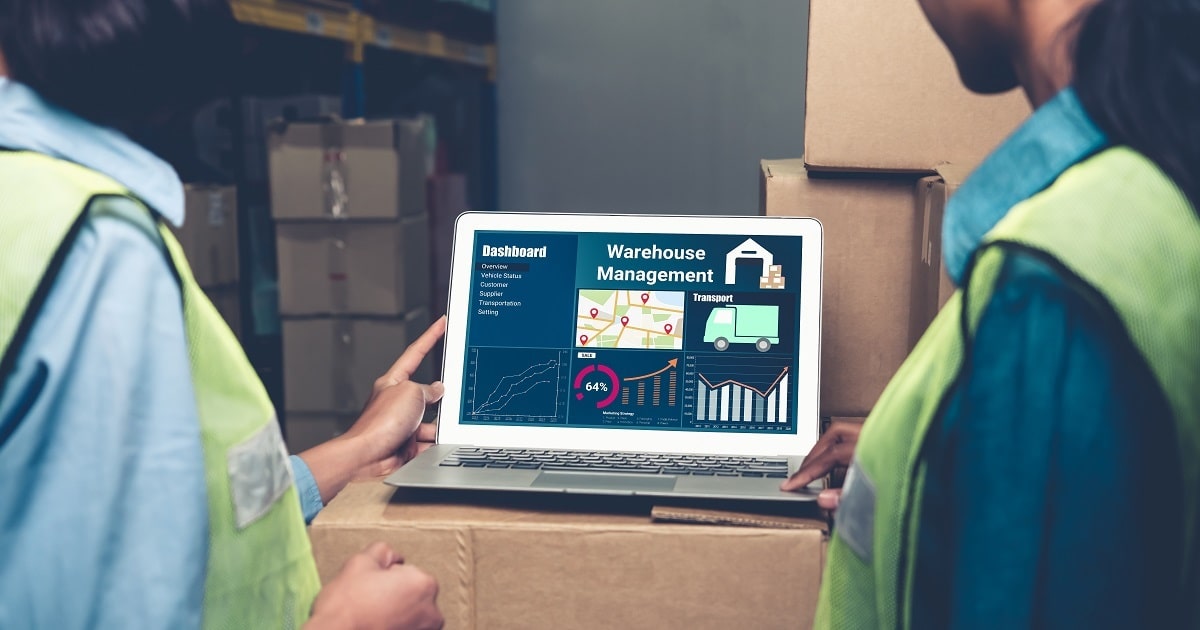
Warehousing and Distribution
Article | June 16, 2023
Over the past decade, transportation and logistics have witnessed an immense transformation, from using automotive vehicles to drones and paper tags to advanced geotags. Also, the introduction of novel technologies and incorporation of innovative solutions such as artificial intelligence and blockchain has further reshaped the sector.
How is Rising Complexity Triggering the Adoption of Novel Technologies?
Today's supply chain is, in a word, complex. It has so many complexities, from ever-rising consumer expectations and disruptive events to globalized sourcing and omnichannel demand, that it is now being compared to a modern-day Gordian knot. With complexity comes ambiguity, particularly in the transportation and logistics industry.
For instance, importers are expected to find cost-effective and efficient ways to transport goods from manufacturing facilities, which are frequently located halfway around the world, to distribution centers and then, ultimately, into the hands of consumers. In addition, e-commerce has further added to the complexity by introducing new channels into the jumble along with the introduction of same-day or next-day delivery standards with higher transparency and tracking features by leading players such as eBay, Walmart, and Amazon Here are a few prominent technologies assisting logistics companies to counter these complexities.
Data Analytics
Big data analytics aids in the more accurate and efficient planning of operational processes, services, and strategies, allowing businesses to align with emerging consumer needs.
Artificial Intelligence (AI) and Machine Learning
AI and Machine Learning have become the most sought-after tech in the transportation food chain. It assists businesses in enhancing operational functionality, boosting productivity and speed, designing optimal transit networks and routes, and improving safety through predictive risk calculation and elimination.
The Internet of Things (IoT)
With the rising need for transparency and tracking of shipped goods, IoT is garnering immense popularity across the transportation and logistics sector. It enables businesses to monitor and track their goods in real-time with the help of geo-tagging, RFID tags, and GPS, resulting in fewer delays in deliveries.
Read More

Supply Chain
Article | August 17, 2023
We track our commitments and goals quarterly through the Schneider Sustainability Impact 2018 – 2020 (formerly called the Planet & Society barometer). The 2018 – 2020 Schneider Sustainability Impact ?shows our commitments by 2020, as well as our contribution to the United Nations Sustainable Development Goals to be achieved by governments, companies, and civil society by 2030.
For nearly 15 years we have been following a clear action plan with a dashboard called Schneider Sustainability Impact. It is based on our 2050 vision with tangible deliverables updated every three years. Our CEO and CFO announce our results on a quarterly basis, together with the company’s financial results.
Read More

Warehousing and Distribution
Article | June 27, 2023
Warehouse Management System
In Supply Chain, warehouse management acts as the bridge between the supplier and customer. The warehouse facility utilized to consolidate or accumulate products and reduce the transportation cost to achieve economy. Warehouse Management System (WMS) refers to the movement and storage of materials within a warehouse. WMS is part of the Supply Chain Management and concerned with the receipt, shipping and picking of materials.
To effectively monitor the flow of products, WMS utilizes technology devices such as Barcode scanners, Bio-Metrics, and RFID to name a few. A seamless link created between the warehouse facility, order processing and logistics management till shipment. Warehouse management just not limited to the warehouse; it can also a component of Supply Chain Management (SCM) and, when done well, provides a competitive advantage to the business or organization.Supply Chain Management is the management of flow of goods and services including raw materials, work-in-process inventory and finished goods. The markets these days are transcending borders and managing the demand-supply quotient is increasingly getting complex. Production centers are setup at locations where the raw materials and labour are cheaper. Raw materials sourcing and finish goods distribution are done globally.
Supply Chain Management
Thus Supply Chain Management refers to all business processes and activities involved from the procurement of raw materials to the manufacturing and distribution of finished products. SCM in short is the art of providing the right product at the right time, place and cost. As inferred, SCM gets much wider in scope than WMS. However, WMS is perhaps the last mile in the Supply Chain Management system and any hitch in the efficacy of WMS system hampers SCM too.
Conclusion
The primary aim of Supply Chain Management is to match supply with demand. For this to work, the supply chain should be free from bottlenecks such as errant supplies, difficulty in sourcing etc. There seemed significant confusion about the phrases SCM and WMS until recently, and both frequently used interchangeably. However, it been generally accepted that warehouse management refers to the logistics of warehouse, storing, stocking, and also movement of goods. The term Supply Chain has a much broader focus involving suppliers, manufacturers and retailers.By providing customer centric operations in warehousing, companies gain competitive advantage. SCM tools help manage the supplies effectively keeping inventory at optimum levels. The efficiency of SCM relies to a large extent upon the efficiency of WMS. The SCM’s primary concern is to find out the best storage levels, which the WMS attempts to address. Therefore, it is seen that the SCM & WMS are only complementary in nature and not competing. Warehouse Management system also complements the Sales Management System by shortening the sales cycle through quick data access and delivery of quality service, every time.
Read More

Warehousing and Distribution
Article | July 11, 2023
Transform the supply chain with cutting-edge warehouse automation tools. Enhance productivity, minimize costs, and deliver exceptional customer experiences to stay ahead in the competitive market.
In the rapidly evolving world of manufacturing, logistics, and supply chain management, adopting automation has become imperative for businesses aiming to maintain a competitive edge. By minimizing costs, enhancing efficiency, and reducing downtime, automation delivers optimal value for manufacturers. However, selecting the right partner can be challenging with numerous warehouse automation companies available. This article explains the features and benefits of top ten warehouse automation tools that offer expertise in improving business operations. These data warehouse tools provide comprehensive solutions to meet diverse needs of the logistics and warehousing companies and improve the supply chain performance.
1. 3PL WMS Software Solution
3PL WMS Software Solution is one of the leading warehouse automation tools for supply chain operations. This software has comprehensive features that automate and streamline warehouse processes, offering unprecedented efficiency. The tool seamlessly integrates with existing systems and provides total transparency and control. 3PL warehouse automation software boosts order throughput, reduces pick time, and automates billing effortlessly. Gain unprecedented insights through accurate, real-time reporting, ensuring inventory accuracy and reducing lost-inventory costs. This warehouse automation tool, designed as the warehouse management backbone, revolutionizes operations, enhances customer satisfaction, and drives exponential growth.
2. Datex 3PL WMS
Datex 3PL WMS offers the most innovative warehouse management tools that help implement warehouse automation in the supply chain process for transportation services. This software empowers transportation and logistics services, revolutionizing material handling, storage, trans-loading, cross-docking, and more. It supports diverse industries such as refineries, steel mills, and energy distribution facilities. Its flexibility makes it an optimal solution to handle any inventory type, including bulk materials, steel products, liquids, and hazardous materials. This automated warehouse software also enables multi-warehouse operations and accommodates various modes of transportation. Additionally, Datex 3PL WMS boasts a highly flexible billing system, allowing individualized billing strategies and capturing value-added services. Industry experts benefit from streamlined processes, improved efficiency, and accurate billing, ultimately enhancing their supply chain business and warehouse operations.
3. Deposco
Deposco Bright Warehouse is a game-changing warehouse management software solution that offers advanced features and capabilities to businesses of all sizes. This data warehouse tool empowers companies to pick, pack, and ship orders efficiently, optimizing processes to further improve order fulfillment while reducing operational costs. It provides strategic order allocation, workgroup segmentation, and optimized picking strategies, to achieve accurate and speedy order fulfillment. The software offers network-wide inventory visibility through advanced tracking, barcoding, and management capabilities. This solution automates shipping processes by seamlessly integrating with carriers, ensuring maximum accuracy and speed. Leveraging its material handling technology for automation can lead to significant productivity improvements. Businesses can enhance their capabilities by accessing a unified view of operations, utilizing customization options, and benefiting from direct API integration with shipping carriers.
4. Softeon
Softeon is a powerful warehouse management tools for supply chain automation. Its comprehensive WMS optimizes distribution operations, handling all essential tasks while offering unique functionality for a competitive edge. With a proven deployment success rate and flexible delivery options in the cloud or on-premise, Softeon empowers businesses to streamline inventory management and delivery processes. By integrating with their Warehouse Execution System (WES), warehouse and distribution companies can further enhance order fulfillment orchestration and optimization. Industry leaders like UPS Supply Chain Solutions and Sears Home Services rely on this warehouse automation software.
5. Logiwa WMS
Logiwa WMS offers a cloud fulfillment platform that combines WMS software and order fulfillment capabilities, enabling companies to operate a digital fulfillment network and expand their direct-to-consumer operations without the need for additional staff. The data warehouse management tool offers comprehensive warehouse and inventory management functionality, billing, and seamless integrations with over 200 ecommerce, accounting, and shipping solutions; it empowers 3PL providers to optimize order fulfillment, enhance speed and accuracy, and drive customer satisfaction.
6. SnapFulfill
SnapFulfill is one of the leading warehouse management technologies that empower companies across various industries, including B2C and B2B retail, third-party logistics, manufacturing, food and beverage, and electronics, to optimize their inventory, space, and resources. With SnapFulfill's class-leading warehouse management solutions, businesses can streamline operations and enhance efficiency. The software offers flexible deployment options and payment methods for diverse warehousing challenges. By utilizing SnapFulfill, industry experts gain access to advanced data warehouse tools that enable them to improve their supply chain business, enhance warehouse and distribution processes, and achieve optimal inventory management for increased productivity and profitability.
7. Indigo Software
Indigo WMS is an award-winning warehouse management system tool designed to enhance supply chain operations. It offers real-time control, visibility, and functionality for all warehouse processes. It is one of the best supply chain tools to track inventory in real-time, enabling efficient cycle counting, forward pick replenishment, and improved inventory forecasting. With Indigo WMS warehouse automation software, these tasks are automated, and the software ensures greater picking accuracy, reduces returns, and enables on-time and complete deliveries. It seamlessly integrates with existing systems, whether from SAP, Microsoft, Oracle, Infor, Sage, or other ERP, TMS, or SCP vendors, providing live and up-to-date data visibility across the entire supply chain process.
8. OrderWise
OrderWise is an order management system that empowers businesses in the consumer goods and retail sector to accelerate operations and deliver exceptional customer service. With its integrated features, OrderWise ensures seamless order processing and maximizes sales opportunities. By tracking orders from various sales channels, managing tight schedules, and making real-time adjustments, businesses can meet customer demands promptly. This is one of those supply chain management tools that provides valuable insights into customer purchase history and stock availability, enabling personalized recommendations and enhancing sales effectiveness. Whether for ecommerce, retail, or B2B sales, OrderWise streamlines order operations, making them smoother, faster, and more accurate.
9. Balloon One
Balloon One provides supply chain management tools, offering tailored software solutions to distribution, manufacturing, and e-commerce businesses. Its expertise lies in streamlining processes, optimizing resource allocation, and enhancing operational efficiency. With a focus on minimal disruption, Balloon One seamlessly implements software solutions, ensuring uninterrupted business operations. As an impartial advisor, the software offers both SAP Business One and NetSuite, thus allowing to recommend the ideal ERP system for each company's unique requirements. In addition, this software provides wholesale and distribution businesses with the robust HighJump WMS, a real-time warehouse management system that delivers scalability and flexibility.
10. Foxfire
Foxfire offers supply chain management tools specializing in Warehouse Management Systems (WMS). It offers WMS solutions, including features to optimize inventory, increase labor productivity, and enhance customer satisfaction. With over 20 years of industry experience, Foxfire has a proven track record of delivering measurable results to customers worldwide. This tool provides a comprehensive approach, including needs assessment, best practice recommendations, training, and ongoing support. Additionally, it is cost-effective by delivering low lifetime costs.
Conclusion
The warehouse automation market is experiencing significant growth, with a wide array of exceptional warehouse automation tools that offer high-quality solutions. Regardless of any special requirements, exploring the features of each warehouse automation tools is vital to identify the ideal fit for any business. Choosing the correct solution from the data warehouse tools list will help to improve inventory management and distribution efficiency through warehouse automation. Embrace the opportunity to streamline processes by leveraging supply chain management tools and warehouse automation solutions and experience the transformative power of automation to unlock the full potential of your business.
Read More